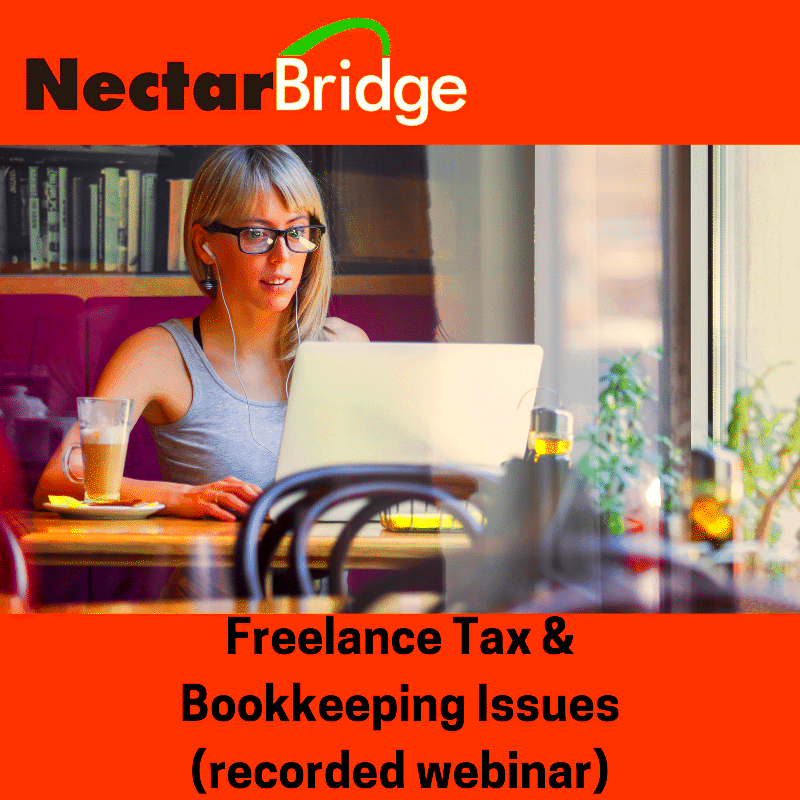To make a living while freelancing could be interesting, however, there are challenges primarily associated to tax payment. Having knowledge on how taxes operate is important for your financial wellbeing. Unlike conventional employees, freelancers bear the burden of tax responsibilities this might seem too much for them initially. The intention of this part is to simplify the basic concepts behind freelance taxes.
A freelancer should be aware of:
- What income tax is and how it affects your earnings
- Why self-employment tax is important
- The difference between gross and net income
If you understand these concepts, you will be in a better position to control your funds and evade shocks during taxation period.
Recognizing Your Tax Obligations as a Freelancer

Being a freelancer, it is important to understand your tax responsibilities. This is unlike a regular employee who has taxes deducted from their paycheck hence they must pay what is owed. Ignorance of the obligations can bring about penalties and surprise bills.
The following are some of the major responsibilities that you need to know:
- Estimated Taxes: Freelancers must pay estimated taxes quarterly. This helps you avoid a large tax bill at the end of the year.
- Self-Employment Tax: This is a tax on your net earnings from self-employment and covers Social Security and Medicare. Currently, it’s 15.3% of your net earnings.
- State Taxes: Depending on where you live, you may also have to pay state income tax. Each state has its own rules, so check your local regulations.
Staying updated on your responsibilities can help you in timely budgeting and planning over the whole year.
Also Read This: List of High Demand Online Jobs in 2023
Exploring Different Types of Taxes Freelancers Need to Pay

Numerous taxes exist for freelancers; therefore, understanding them shall ease financial problems. Below is a summary of the main taxes that you will face:
| Type of Tax | Description |
|---|---|
| Income Tax | This is a tax on the money you earn. The more you make, the higher your tax bracket may be. |
| Self-Employment Tax | This tax is specifically for freelancers to cover Social Security and Medicare. It's calculated on your net income. |
| Sales Tax | If you sell products, you may need to collect sales tax from your clients and remit it to the state. |
| Local Taxes | Some localities impose additional taxes. Check your city or county’s requirements to stay compliant. |
Comprehensive comprehension of the taxes are vital in making correct choices concerning finances and being ready for the season to file returns.
Also Read This: How Much Does Fiverr Take from Buyers? Understanding Fiverr’s Fees
Keeping Accurate Records for Tax Purposes

Maintaining precise documentation is essential for running your independent contracting company properly and making it easier come tax season. Tracking what you earn or spend as a self-employed worker can be overwhelming if there isn’t an organized scheme in place. In addition to simplifying the filing process during taxation periods, proper record keeping provides insights into how well (or otherwise) you are doing financially on a yearly basis.
The following are some of the fundamental advice to be sure that your records are precise:
- Organize Your Income: Keep track of all payments received. Use a spreadsheet or accounting software to log each payment with the date, client name, and amount.
- Document Your Expenses: Save receipts for all business-related expenses. This includes things like office supplies, software subscriptions, and travel costs.
- Separate Business and Personal Finances: Open a separate bank account for your freelance income and expenses. This simplifies tracking and makes it easier to see your business's financial picture.
- Keep Regular Backups: Regularly back up your financial records to avoid losing them. Cloud storage or external hard drives are good options.
Once you set a thorough system of record keeping, you organize well and thus it becomes easy to file taxes later.
Also Read This: How to Add Payoneer to Your Fiverr Account
Understanding Deductions Available to Freelancers
Your taxable income can be reduced if you are a freelancer who is able to deduct business expenses. It is important to know what you can deduct in order to lower your taxes and retain more of the money you make as soon as possible. However, it is essential that you understand the rules regarding deductible expenses.
Freelancers often have the ability to deduct a few common things:
- Home Office Deduction: If you use part of your home exclusively for business, you can deduct a portion of your rent or mortgage interest, utilities, and internet expenses.
- Business Supplies: Items like computers, office supplies, and software can often be deducted.
- Travel Expenses: If you travel for work, you can deduct transportation, lodging, and meal costs.
- Professional Services: Fees paid to accountants, lawyers, or consultants can also be deducted.
You need to ensure that there is clear documentation of these expenses in order to substantiate your deductible amounts. Taking into account all permissible deductions will enable you to substantially minimize the amount of taxes you could owe.
Also Read This: How Do I Pay on Fiverr? Insights from Reddit
Filing Your Taxes: A Step-by-Step Guide
Though filing your taxes as a freelancer may appear terrifying, you can make the process easier by breaking it down into small portions that are simpler to manage. By following this step-wise guide, you will be able to file your tax returns comfortably without succumbing to last-minute anxiety.
Going in the following manner is recommended:
- Gather Your Records: Collect all your income statements, expense receipts, and any relevant documents you've kept throughout the year.
- Determine Your Tax Obligations: Figure out whether you need to pay federal, state, and local taxes. Each area has its own rules, so do your research.
- Choose Your Filing Method: Decide whether to file online using tax software or to hire a tax professional. Online tools can simplify the process for many freelancers.
- Complete Your Tax Forms: Fill out the necessary forms, such as the 1040 and Schedule C for self-employed income. Make sure to include all deductions.
- Review and Submit: Double-check your forms for accuracy before submitting. This helps prevent delays or issues.
- Settle Your Payments: If you owe taxes, arrange to pay them by the deadline to avoid penalties.
In such a way that there are no surprises as you meet your obligations, you can follow the outlined steps and make the filing process less complicated and stressful.
Also Read This: How to Hack Fiverr: Tips and Strategies for Success
Handling Tax Payments and Deadlines
For freelancers, it is very important to learn how to manage tax payments and deadlines since failure in this regard may result in penalties as well as interest. Hence it’s important to be organized and act before time runs out. A good piece of news is that you can manage your taxes efficiently if you plan ahead just a bit.
A few things you should keep in mind are:
- Know Your Tax Deadlines: Typically, tax returns for freelancers are due on April 15th. However, if you need an extension, you can file for one, but any taxes owed must still be paid by the original deadline.
- Quarterly Estimated Payments: As a freelancer, you may need to make quarterly estimated tax payments. These are generally due on April 15th, June 15th, September 15th, and January 15th of the following year. Make sure to calculate your estimated taxes to avoid underpayment penalties.
- Payment Methods: You can pay your taxes through various methods, including electronic funds withdrawal, credit or debit cards, and checks. Each method may have different processing times, so choose one that works best for you.
- Keep Good Records: Maintain a log of all your payments and receipts. This will help you stay organized and serve as proof in case of an audit.
Giving attention to these aspects guarantees that your tax remittances go without hitches to ensure your enterprise operates without any burden.
Also Read This: Is Paying for Fiverr Reviews Allowed? Discover the Facts
Frequently Asked Questions about Freelance Taxes
The freelance tax process can be quite confusing and many people have similar questions. This section addresses some frequently asked questions in order to help you define your tax obligations and choices.
Some general inquiries and their responses are provided below:
| Question | Answer |
|---|---|
| Do I need to file taxes if I made less than $600? | Yes, even if you earn less than $600, you are still required to report your income. |
| Can I deduct my home office expenses? | Yes, if you use a portion of your home exclusively for business, you can claim a home office deduction. |
| What if I can’t pay my taxes on time? | If you're unable to pay, contact the IRS. They may offer options such as a payment plan or temporary relief. |
| Is it better to hire a tax professional? | Hiring a tax professional can be beneficial, especially if your situation is complicated. They can help maximize deductions and ensure compliance. |
Navigating the freelancing world of taxes can be done easily if you handle the anxieties that are connected with it.
Conclusion: Staying Informed about Your Tax Responsibilities
Finally, it is crucial that every freelancer stay aware of their taxation duties. Indeed, taxes can be a confusing ocean sometimes but they are not impossible to navigate if one is well educated and prepared beforehand. You need to understand how the tax system operates; maintain accurate personal accounts and involve yourself in setting up deadlines in order to also survive in a strong position come the rough tax season.
Finally, just a couple of suggestions which may be helpful:
- Educate Yourself: Stay updated on tax laws and changes that could affect your freelance work.
- Utilize Tools: Consider using accounting software to simplify tracking your income and expenses.
- Seek Help: Don’t hesitate to reach out to professionals if you have questions or concerns. It's better to ask than to risk making mistakes.
In this way, ensuring that tax season becomes yet another component of your career path and minimizing stress while maximizing the profits earned from freelancing can be achieved through these measures.




